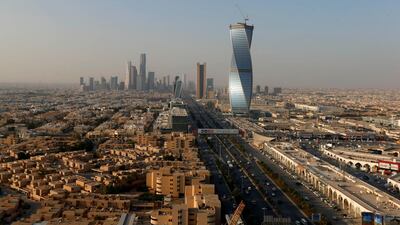Saudi Arabia said yesterday it tapped its October domestic currency issue for the second time, selling 4.77 billion Saudi riyals (US$1.27bn) worth of Islamic bonds as the kingdom shores up funds to meet its financing needs.
Riyadh sold a five-year 2.4bn riyal, a seven-year 1.8bn riyal and a 10-year 475 million riyal tranches, the ministry of finance said. It sold 6.68bn riyals in the first tapping of the 10bn riyal October domestic issue.
Saudi Arabia, the world's biggest oil exporter, which is still dependent heavily on hydrocarbons revenues to fuel its economy, is issuing domestic Sharia-compliant bonds to bridge a fiscal deficit caused by low oil prices. The government in July began selling sukuk under a new programme, without specifying how much it planned to sell or the timeline for issuances.
_______________
Read more:
Saudi Arabia unveils biggest ever budget to propel growth
Saudi Arabia sells 7bn riyals worth of Islamic bonds
_______________
This year, the kingdom has already sold a $9bn international sukuk in April and in September raised $12.5bn through a conventional bond deal to strengthen its funding buffers.
The Saudi government put on hold in October last year the sale of domestic conventional bonds after tapping the international debt capital market with its debut $17.5bn sovereign bond, the biggest deal by an emerging market nation.
Prior to the international sale, the government sold 20bn riyals through the sale of local currency bonds to banks and financial institutions each month since mid-2015 to help offset the impact of lower oil revenues.
The kingdom last week unveiled its biggest budget yet for 2018 to boost growth in the wake of fiscal consolidation and on lower crude output.
Saudi Arabia is forecasting a fiscal deficit of 195bn riyals for 2018 or 7.3 per cent of GDP, compared with a shortfall of 230bn riyals or 8.9 per cent of GDP in 2017.
The government, which issued 134bn riyals in debt in 2017 to finance the budget deficit, is projecting only 117bn riyals in debt issuance for 2018. Debt issuance should not exceed 30 per cent of the country's GDP, the finance ministry said.

